Organised by the Urban Ecology Lab (T Factor Shanghai’s initiative in Xinhua), this workshop is an activity to explore the urban environment through new lenses and by the use of new tools fabricated with recycled courier packaging. It aims to provoke Xinhua residents to reflect and change their definition of “nature” - which typically comes from an anthropocentric perspective - into a definition of “nature” that looks at multispecies coexistence.
The workshop is fully hands-on. The participants learnt and applied the techniques: they left the workshop with a working tool and with a methodology that can be useful in every other more-than-human explorations.
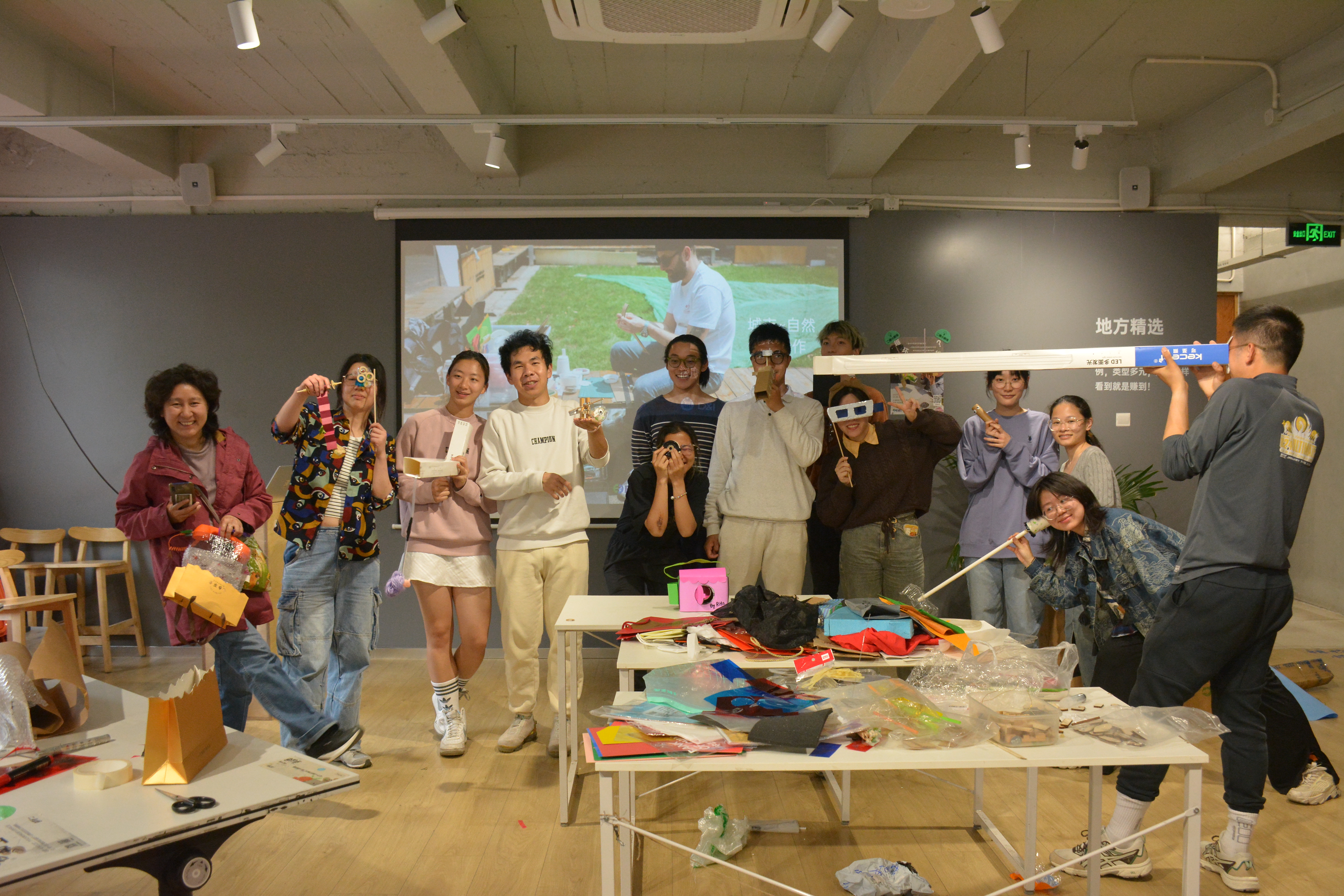
Session 1: Eliciting immersive memories
In the first phase, participants had a guided attentive and embodied exploration of the environment, “an Empathy Walk”, to stimulate their perception and memories regarding the natural environment. It took place in the Xinhua Community Design Center, where participants used all their senses to explore the lawns, the community garden and the trees in the alley.
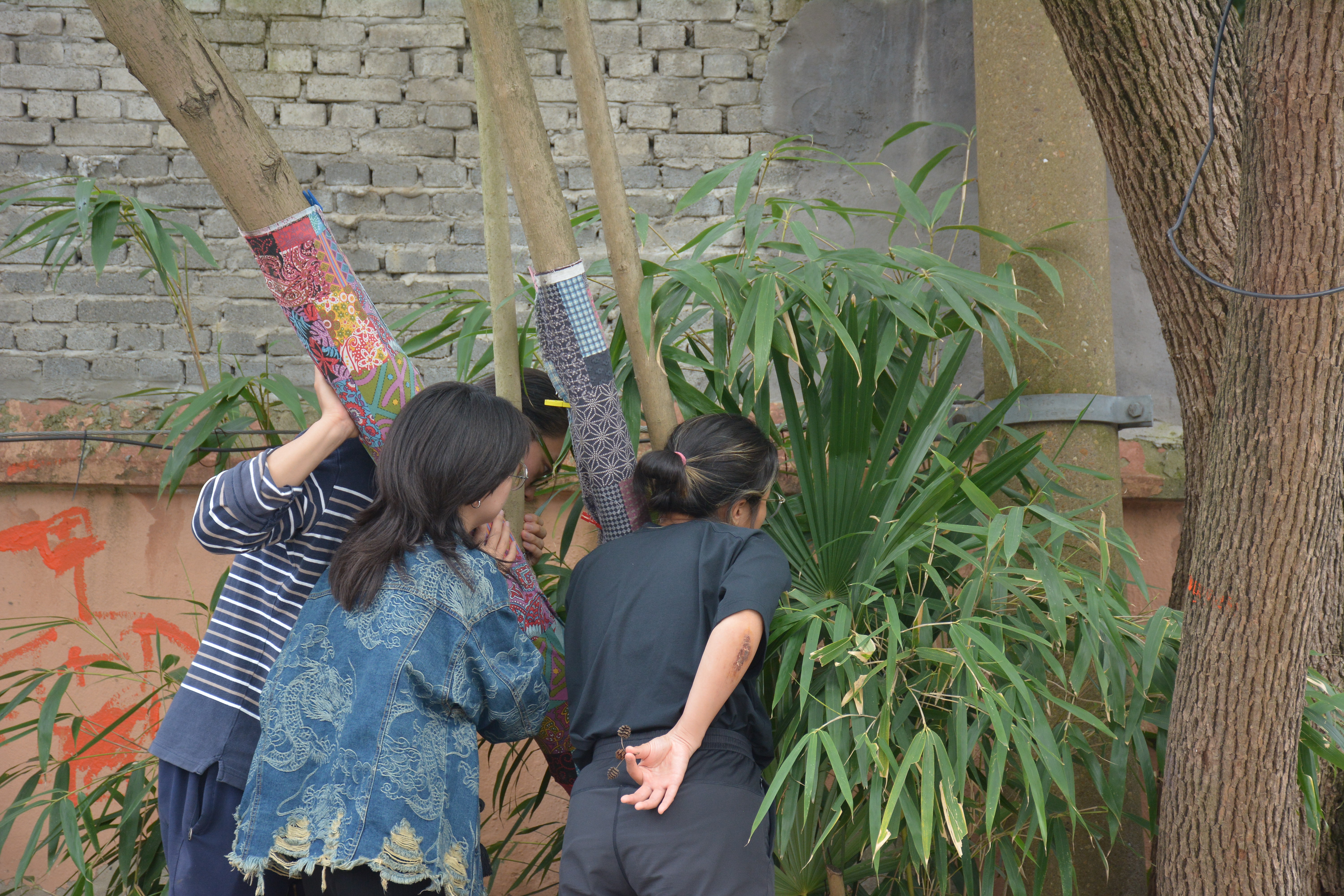
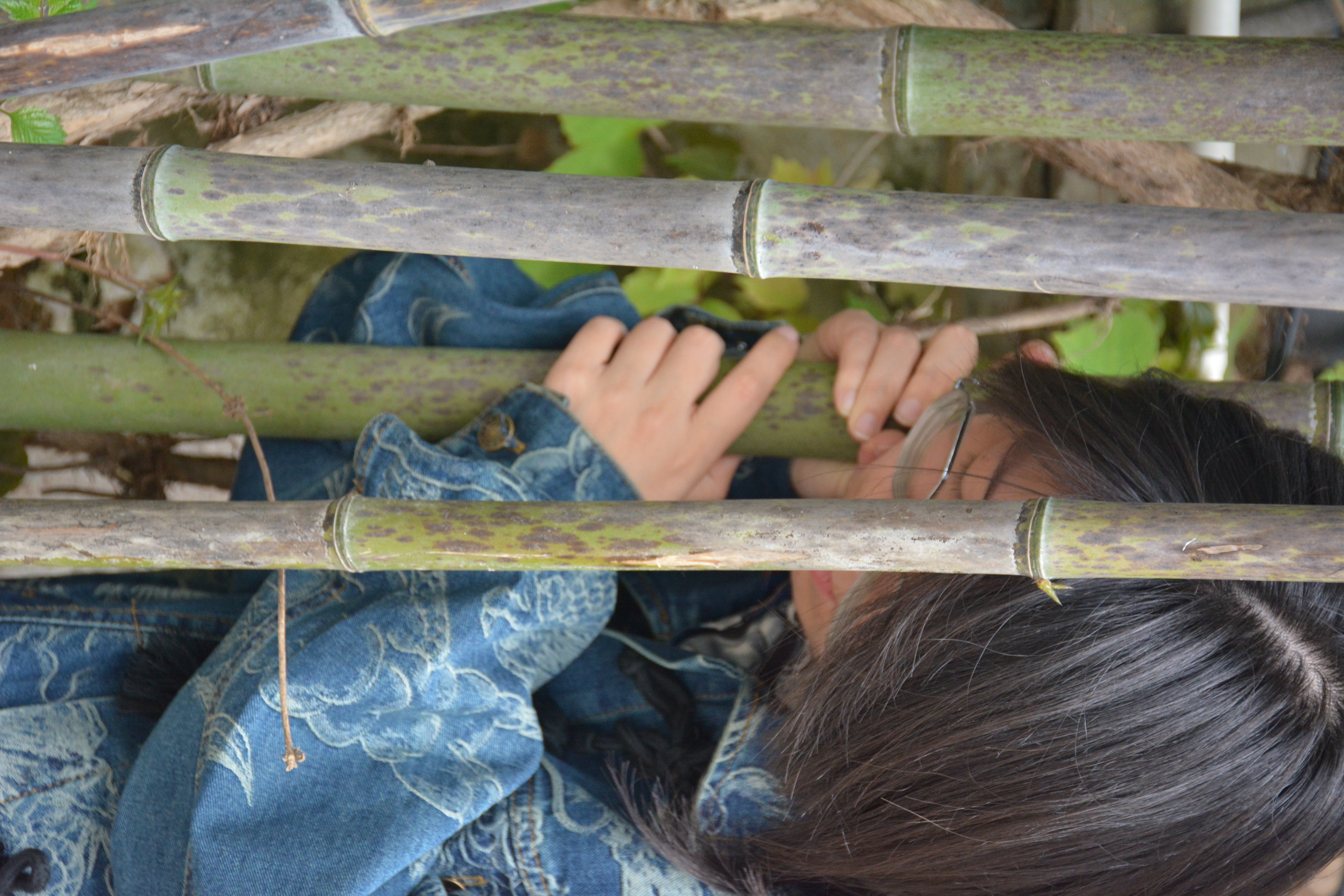
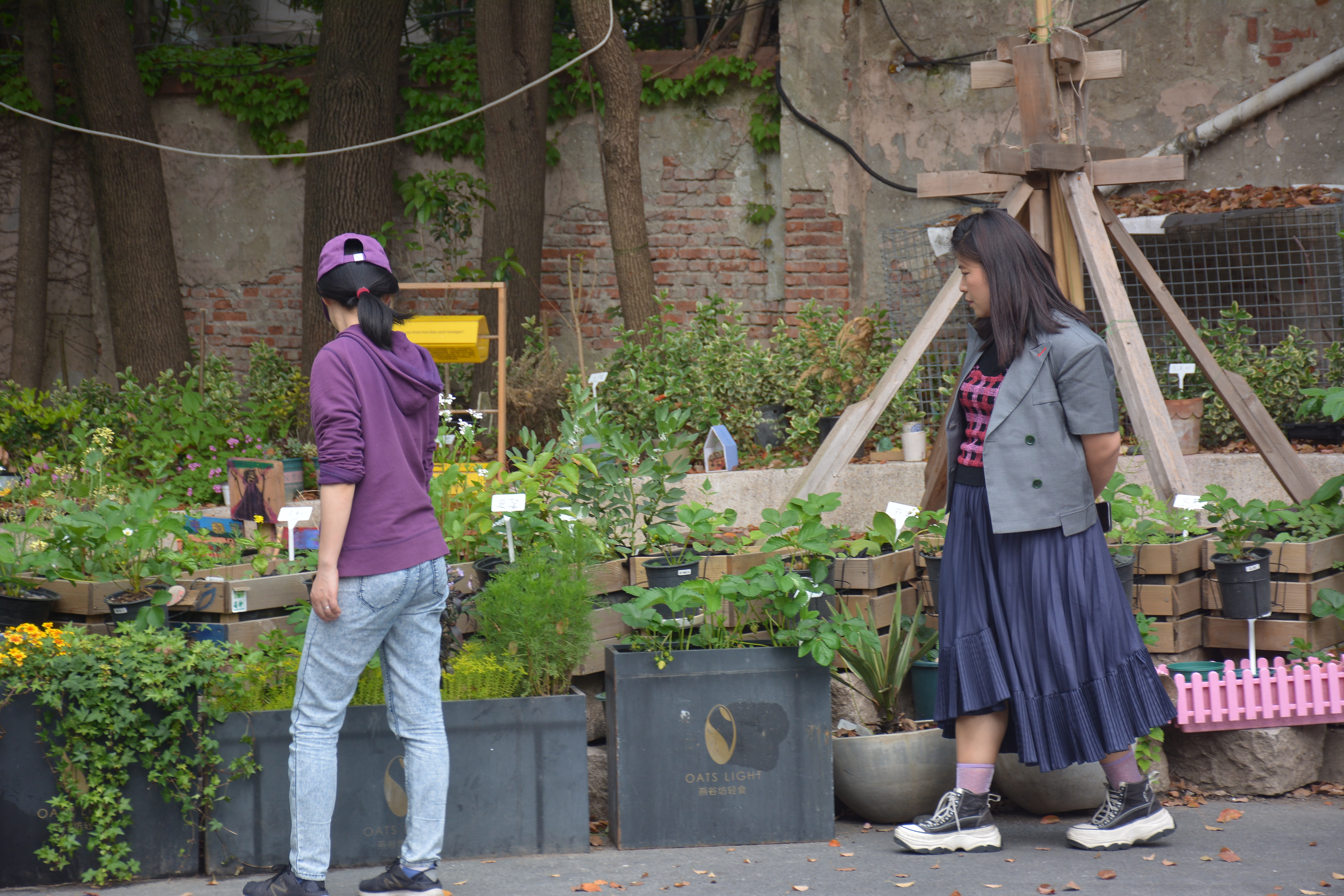
Session 2: Grounding and manifestation
Participants shared their feelings and impressions of the observation. Someone also brought back natural entities. All these sharings were intuitively and collaboratively mapped so that a more-than-human territory was visualised and became present.
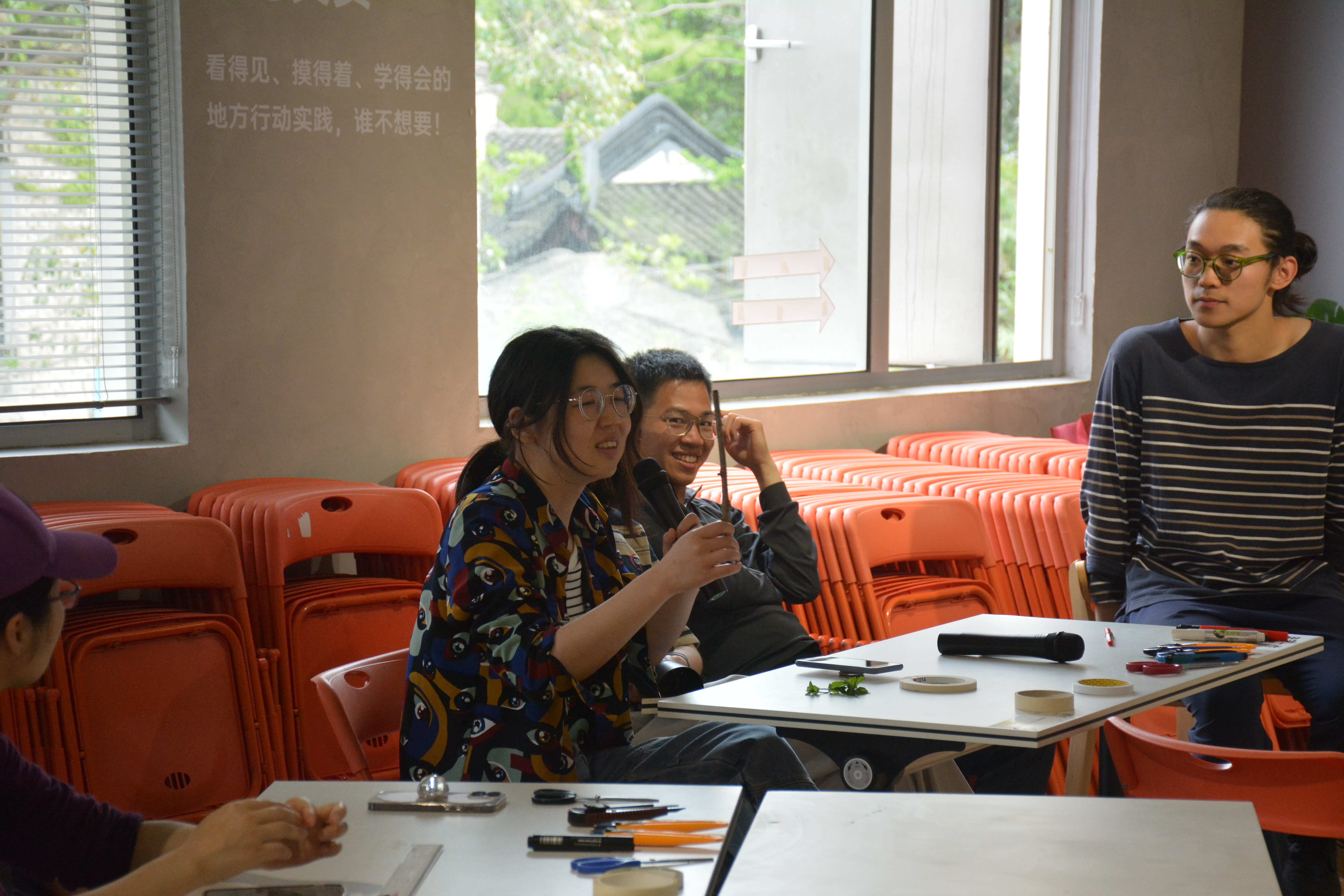
Session 3: Creating the tool
To create their own tools to explore urban nature in different ways, participants were provided with three kinds of materials: 1) things to make shapes, e.g. courier packaging, paper boxes, foams, disposable cups, chopsticks, plastic bags, cardboards, anything cheap, recycled or dumped; 2) things to cut, e.g. retractable blade, scissors, saw, etc; 3) things to join, e.g. glue, tape, hot glue, metal pins etc.
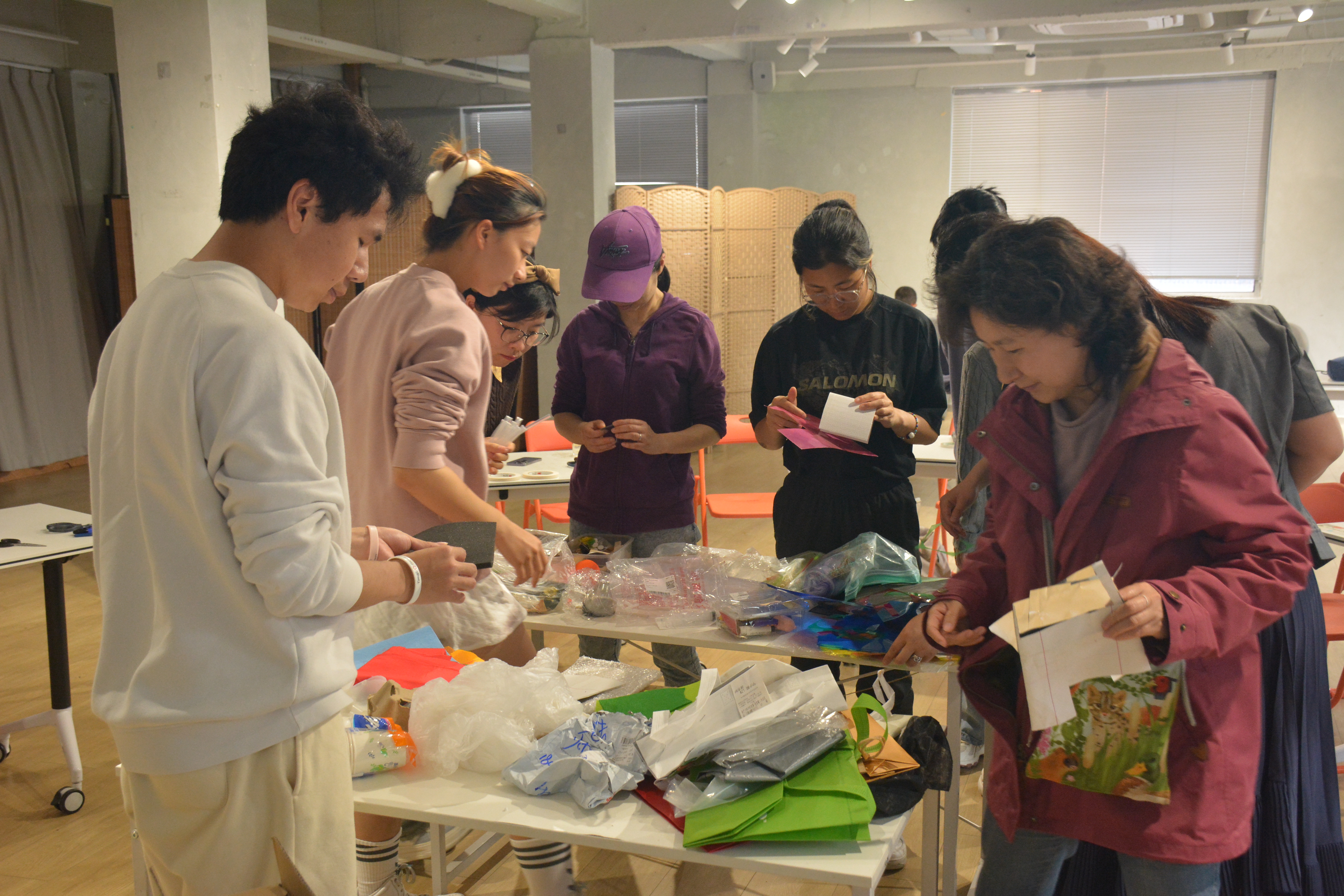
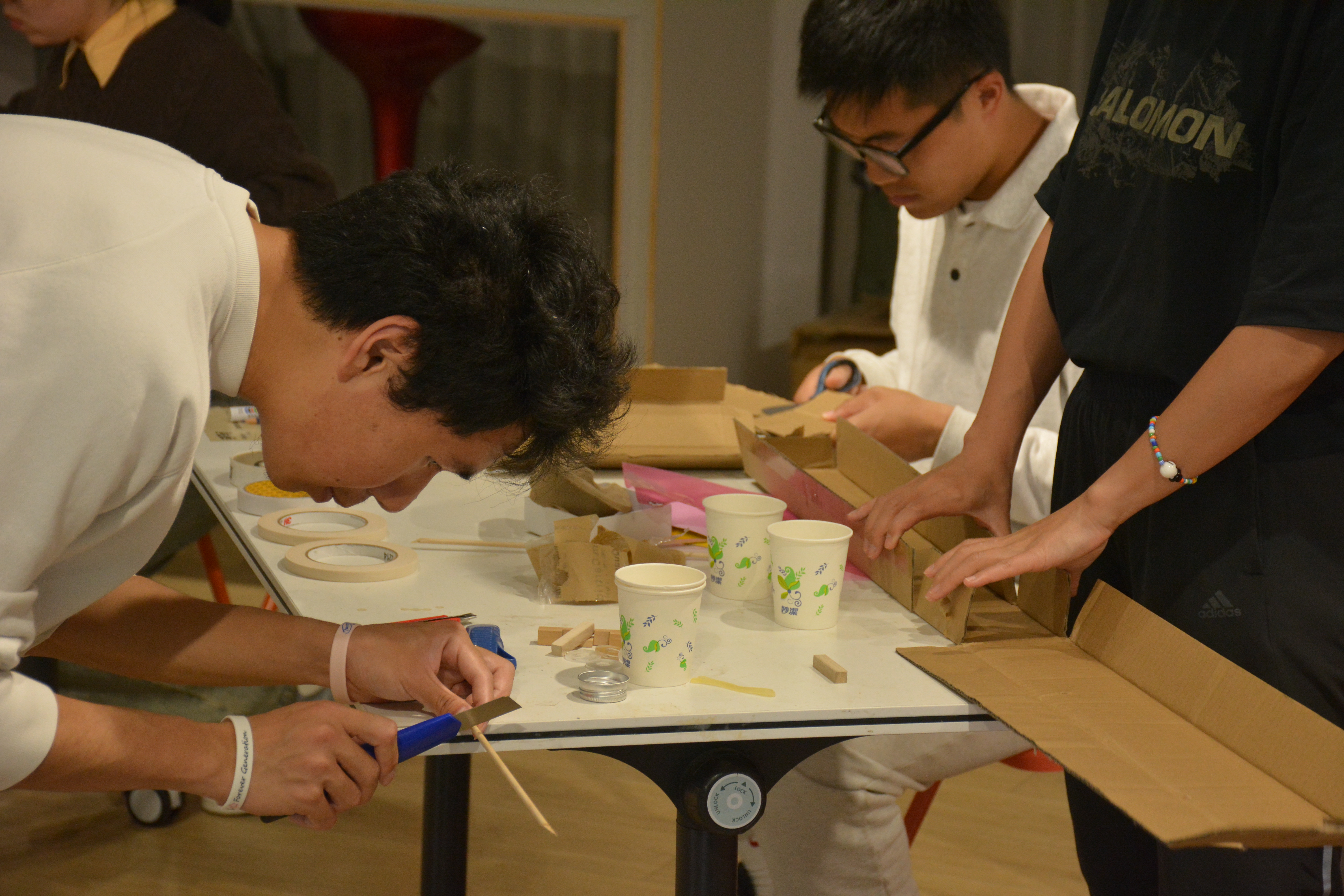
Participants were taught to use a physical ideation technique, “Very Rapid Prototyping”, to use their hands and minds at the same time to fabricate their personal exploration tools: their function might not be obvious and they might not have a dedicated name, so... "whatchamacallit"? Their purposes include changing sensory perspectives, experiencing other species’ perceptions, speculative performance etc.
Session 4: Sharing
Finally, participants shared the results and had discussions in light of the ecological framework and more-than-human domain.
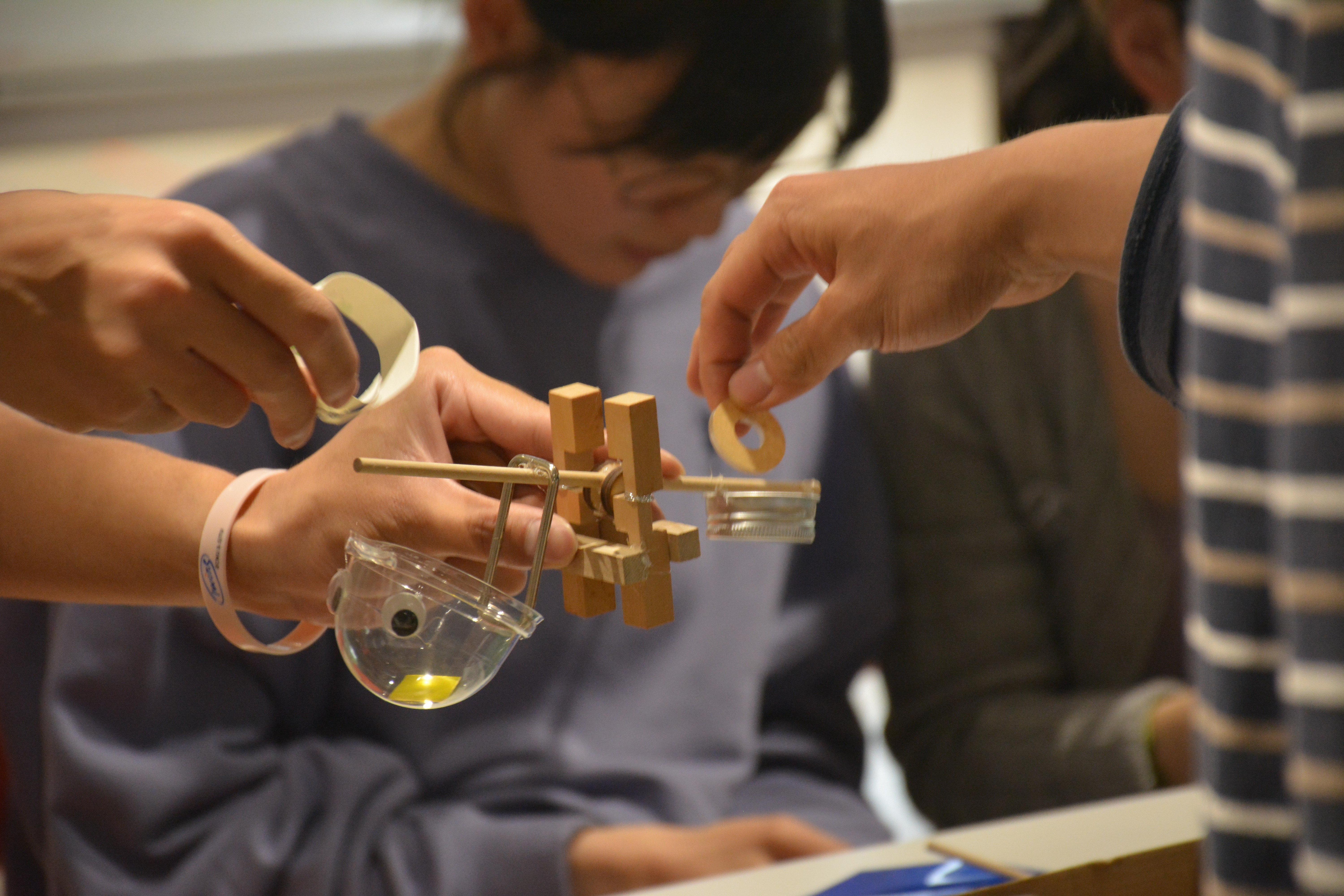
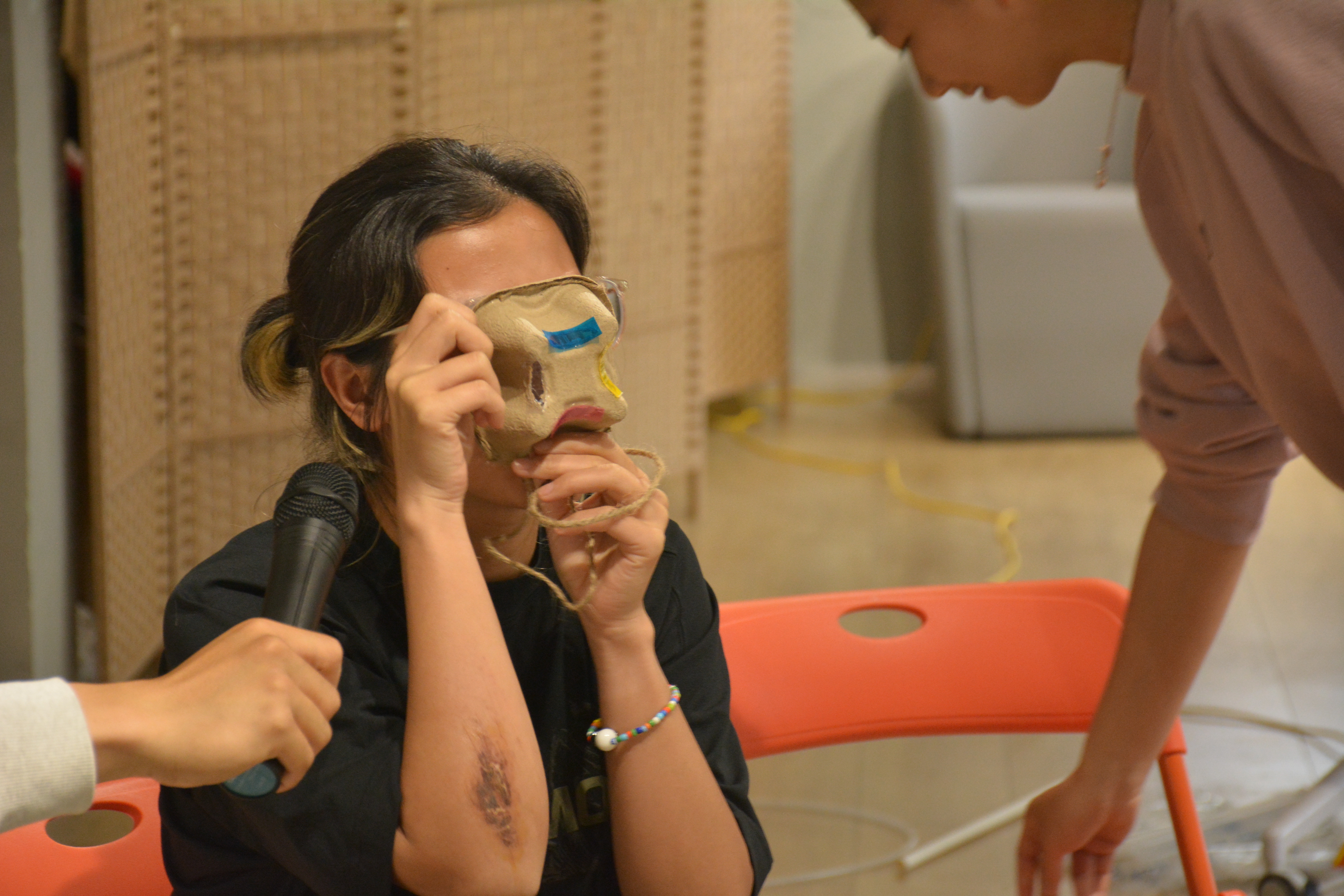
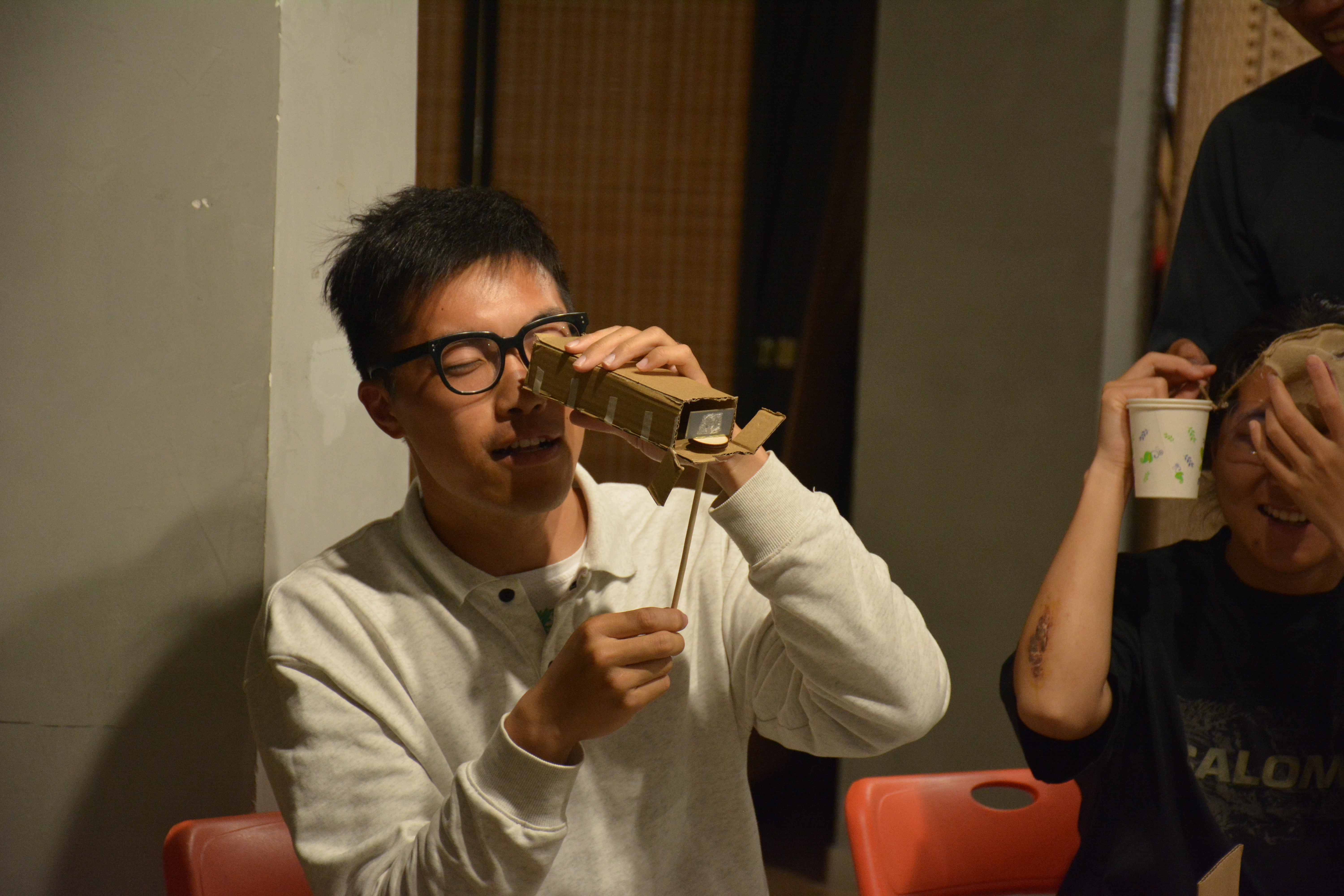
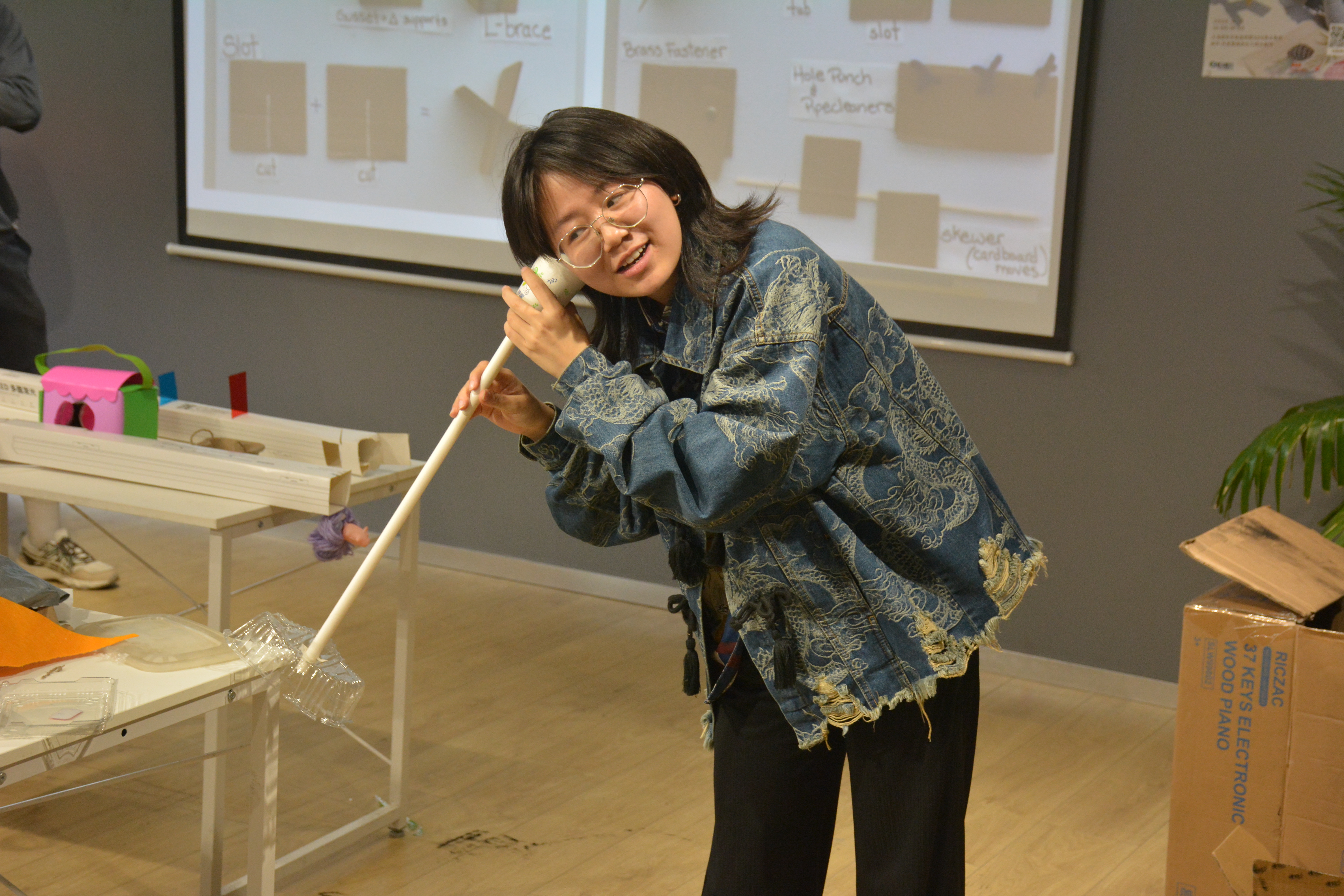
After the workshop, each participant learnt the basic skills of rapid prototyping and how to create functioning tools from cheap recycled materials to start the exploration of nature in relationship with personal, human, and social environment.
Authors: LU Wentao, Francesca VALSECCHI, LIN Zijie
- Do-It-Together Eco-practices
- Universities-Grassroots collaboration
- Wild and Cultivated green spaces
Tags: Nature exploration, Urban ecology, Nature education, Ecological civilisation